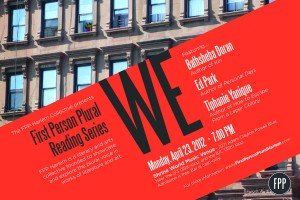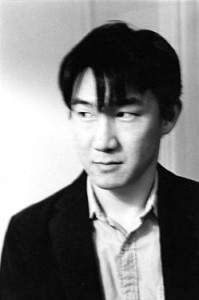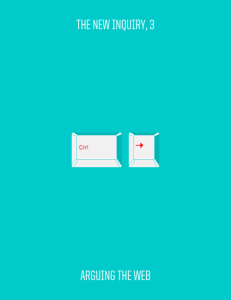 We are holding our second FPP Harlem Reading at Shrine next Monday night 4/23 at 7pm featuring playwright Bathsheba Doran; former editor of The Believer and novelist Ed Park; and short story writer Tiphanie Yanique.
We are holding our second FPP Harlem Reading at Shrine next Monday night 4/23 at 7pm featuring playwright Bathsheba Doran; former editor of The Believer and novelist Ed Park; and short story writer Tiphanie Yanique.
Writers will read from their body of work and new pieces exploring the plural voice. Join us for this one-of-a-kind evening! It’s FREE and there’s a cash bar. You will find us at: Shrine World Music Venue, located at 2271 Adam Clayton Powell Blvd. Harlem, NY http://www.shrinenyc.com/


